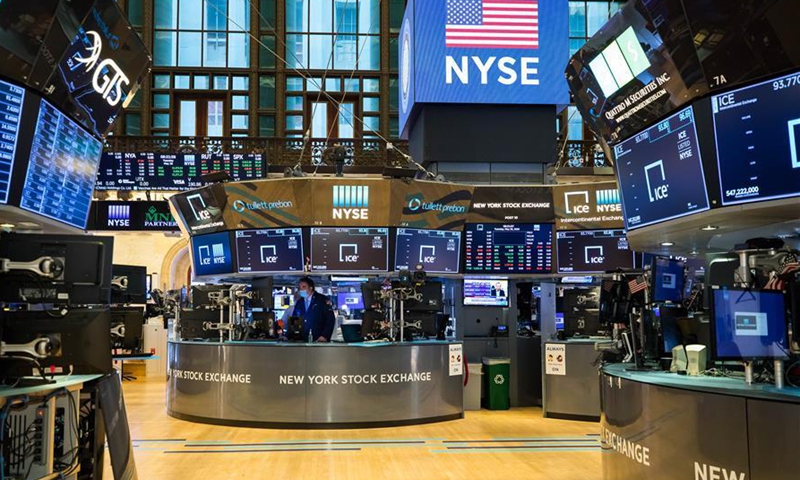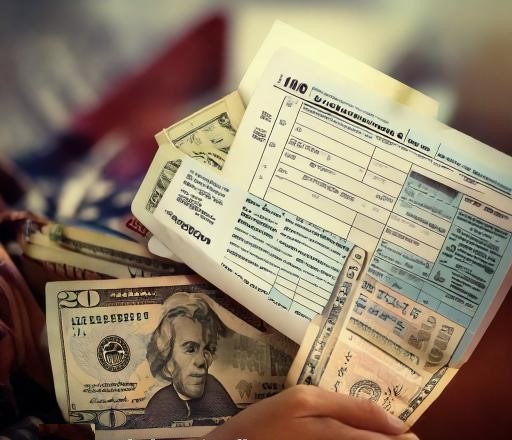Discover the world of opportunities and success by delving into this comprehensive guide on the New York Stock Exchange (NYSE). Uncover the secrets of thriving in the stock market with positivity and confidence.
In the fast-paced world of finance, the New York Stock Exchange (NYSE) stands as an iconic symbol of wealth, power, and opportunity. For both seasoned investors and newcomers to the world of stocks, understanding the NYSE is essential. In this article, we will delve into the intricate workings of the NYSE, breaking down its history, structure, key players, and its significance in the global financial landscape.

Table of Contents
1. Introduction: The NYSE in a Nutshell
The New York Stock Exchange, commonly known as the NYSE, is the largest and most prestigious stock exchange in the world. Located on Wall Street in the heart of Manhattan, it has been a beacon of financial activity for over two centuries.
2. A Brief History of the NYSE
The NYSE has a rich history dating back to 1792 when 24 stockbrokers signed the Buttonwood Agreement. This historic event marked the birth of organized securities trading in the United States.
3. NYSE Trading Hours
The NYSE operates on a strict schedule, with trading sessions divided into specific hours. Understanding these hours is crucial for investors looking to trade on the exchange.
4. NYSE Structure and Organization
The NYSE is not just a trading platform; it’s a complex institution with a well-defined structure. We’ll explore the trading floor, listing requirements, and the various market participants that keep the NYSE running smoothly.
The Trading Floor
The iconic image of traders in colorful jackets waving their arms is synonymous with the NYSE. But what really happens on the trading floor?
Listing Requirements
To be listed on the NYSE, a company must meet stringent criteria. We’ll delve into what it takes for a business to be traded on this prestigious exchange.
Market Participants
Understanding who participates in NYSE trading, from brokers to specialists, is essential to grasp the dynamics of this bustling marketplace.
5. NYSE vs. Other Stock Exchanges
While the NYSE is the most famous, it’s not the only stock exchange in the world. We’ll compare the NYSE with other major exchanges to highlight its unique attributes.
6. The Role of Brokers and Market Makers
Brokers and market makers play pivotal roles in ensuring smooth trading operations on the NYSE. We’ll break down their functions and how they impact the market.
7. Stock Indices: Measuring NYSE Performance
The NYSE is home to some of the most influential stock indices globally. We’ll explore the significance of these indices in gauging market performance.
8. Investing in NYSE: Tips for Beginners
For those venturing into NYSE investing for the first time, we’ve got you covered with essential tips on building a successful investment portfolio.
Diversification
Why is diversification crucial, and how can it protect your investments?
Risk Management
Investing always involves risk. Learn how to manage and mitigate risks effectively.
9. NYSE’s Impact on the U.S. Economy
The NYSE’s influence extends far beyond Wall Street. Discover how this exchange impacts the broader U.S. economy.
10. The NYSE in the Digital Age
In an era of digital innovation, how has the NYSE adapted to remain a global financial powerhouse?
11. NYSE Regulatory Framework
To maintain trust and integrity, the NYSE operates under a robust regulatory framework. We’ll explore the rules and oversight that govern the exchange.
12. NYSE and Global Markets
The NYSE has connections to markets worldwide. Understand its role in the global financial ecosystem.
13. The NYSE and IPOs
Initial Public Offerings (IPOs) are significant events on the NYSE. We’ll explore how companies go public on this exchange.
14. NYSE in Pop Culture
The NYSE often makes appearances in movies, books, and television. Explore its cultural significance.
15. Conclusion: The NYSE’s Enduring Legacy
In conclusion, the New York Stock Exchange is not just a financial institution; it’s a symbol of capitalism and a testament to the power of financial markets.
Frequently Asked Questions (FAQs)
- What is the NYSE’s trading schedule?
- How does the NYSE compare to other stock exchanges?
- Can anyone invest in NYSE-listed stocks?
- What is the role of market makers on the NYSE?
- How has the NYSE adapted to the digital age?
In this comprehensive guide, we’ve provided an in-depth look at the New York Stock Exchange, demystifying its history, structure, and significance in the world of finance. Whether you’re a seasoned investor or just curious about the world of stocks, understanding the NYSE is a valuable knowledge. It’s more than a marketplace; it’s a symbol of economic power and opportunity.
What is the NYSE’s trading schedule?
The NYSE operates on regular trading hours from Monday to Friday. The opening bell rings at 9:30 AM Eastern Time, and the closing bell marks the end of the trading day at 4:00 PM Eastern Time. There are also pre-market and after-hours trading sessions, but they have limited trading activity compared to the regular hours.
How does the NYSE compare to other stock exchanges?
The NYSE is the largest stock exchange globally in terms of market capitalization and the number of listed companies. It is known for its iconic trading floor and stringent listing requirements. While there are other major exchanges like NASDAQ and international exchanges like the London Stock Exchange and Tokyo Stock Exchange, the NYSE’s history, prestige, and size set it apart.
Can anyone invest in NYSE-listed stocks?
Yes, anyone with a brokerage account can invest in stocks listed on the NYSE. You can open a brokerage account with a financial institution or an online brokerage platform. It’s essential to do your research, understand the risks, and consider your investment goals before investing in NYSE-listed stocks.
What is the role of market makers on the NYSE?
Market makers play a crucial role in facilitating trading on the NYSE. They are brokerage firms or individuals who maintain liquidity in specific stocks by continuously quoting buy and sell prices. Market makers help ensure that there are buyers and sellers for stocks, which enhances market efficiency and reduces price volatility.
How has the NYSE adapted to the digital age?
The NYSE has embraced technology to keep pace with the digital age. While the iconic trading floor with traders in colorful jackets still exists, much of the trading occurs electronically. The NYSE introduced electronic trading systems, making it possible for traders to buy and sell stocks electronically. This adaptation has increased trading speed and efficiency, allowing investors from around the world to participate in NYSE activities seamlessly.
What Time Does the New York Stock Exchange Open?
In the fast-paced world of finance, timing is everything. The opening and closing times of stock exchanges around the world play a crucial role in the daily routines of traders and investors. One of the most prominent and influential stock exchanges in the world is the New York Stock Exchange (NYSE). If you’re interested in trading stocks or simply curious about when the NYSE begins its daily operations, you’ve come to the right place. In this article, we’ll explore the opening hours of the NYSE and provide you with key points in a simple, human-friendly format.
Understanding the New York Stock Exchange (NYSE)
Before we delve into the opening hours, let’s briefly understand what the New York Stock Exchange is. The NYSE is one of the largest and oldest stock exchanges globally, with a history dating back to 1792. It’s located on Wall Street in New York City and is known for trading a wide range of stocks, including some of the world’s most well-known companies.
The Significance of NYSE Trading Hours
The NYSE operates on regular trading days, which are typically Monday through Friday. Understanding the opening and closing times of the NYSE is vital for traders and investors, as it affects their trading strategies and decision-making processes.
NYSE Opening Hours
Now, let’s get to the heart of the matter – when does the NYSE open for business? The regular trading hours for the NYSE are as follows:
1. Pre-Opening Session (Early Trading)
- Time: 4:00 AM to 9:30 AM (Eastern Time)
- Description: The pre-opening session allows traders to place orders, but actual trading doesn’t begin until the regular session starts.
2. Regular Trading Session
- Time: 9:30 AM to 4:00 PM (Eastern Time)
- Description: This is the main trading session when most of the day’s trading activity occurs. It’s divided into two parts: the core trading session and the closing auction.
3. Late Trading Session (After Hours)
- Time: 4:00 PM to 8:00 PM (Eastern Time)
- Description: The late trading session allows for after-hours trading, providing additional opportunities for traders and investors.
Key Points to Remember
- The NYSE opens at 9:30 AM Eastern Time for the regular trading session.
- Pre-opening and after-hours sessions offer extended trading opportunities.
- Trading hours may vary on holidays and special occasions.
Conclusion
In conclusion, knowing the opening hours of the New York Stock Exchange is essential for anyone involved in stock trading or investing. The NYSE’s regular trading session begins at 9:30 AM Eastern Time, but there are opportunities for trading during the pre-opening and after-hours sessions as well. Keep in mind that trading hours may be subject to change on holidays and special occasions, so it’s crucial to stay informed.
FAQs
- What time does the NYSE close for the day?
- The NYSE’s regular trading session concludes at 4:00 PM Eastern Time.
- Are there any exceptions to the NYSE’s trading hours?
- Yes, trading hours may be adjusted on holidays and special occasions, so it’s advisable to check the NYSE’s official website for updates.
- Can I trade stocks on the NYSE before the regular session begins?
- Yes, you can place orders during the pre-opening session, which starts at 4:00 AM Eastern Time.
- Is after-hours trading on the NYSE available to all investors?
- After-hours trading is generally accessible to most investors, but it’s essential to check with your brokerage for specific details.
- Where can I access real-time information about NYSE trading hours?
- You can find up-to-date information on the NYSE’s official website or through financial news sources.








